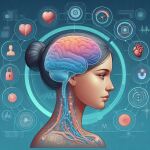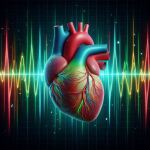Two moments in life are crucial for aging: 40 years and 60 years
Discover how aging affects your metabolism and physical and mental health. Research with Stanford on crucial changes and the importance of diet and lifestyle....
Table of Contents
- Aging: A Non-Linear Process
- Key Factors: Diet and Lifestyle
- The Impact on Mental Health
- Prevention Strategies
Follow Patricia Alegsa on Pinterest!
Aging: A Non-Linear Process
From a philosophical perspective, aging is a process that begins at the moment of birth, marking our journey towards death.
However, this process is often conceptualized linearly, assuming that it develops progressively and steadily.
A recent study from Stanford University has challenged this notion, suggesting that aging occurs in specific stages and not uniformly, which can have significant implications for our health and well-being.
According to the research, there are two critical stages in life where significant physiological changes occur: between the ages of 40 and 44, and between 60 and 65 years old.
According to the research, there are two critical stages in life where significant physiological changes occur: between the ages of 40 and 44, and between 60 and 65 years old.
During these periods, individuals may experience unexpected alterations in their health, from increased wrinkles to concentration problems.
These findings underscore the importance of paying attention to health and lifestyle during these phases of life, where changes can be more noticeable and affect different organ systems.
The Stanford study focused on biomarkers related to aging, analyzing a wide variety of biological samples from people of different ages.
Key Factors: Diet and Lifestyle
The Stanford study focused on biomarkers related to aging, analyzing a wide variety of biological samples from people of different ages.
The results have shown that diet and lifestyle are determining factors in how we face these transitions.
Maintaining a balanced diet and an active lifestyle can mitigate the negative effects of aging, especially during the critical stages identified in the research.
The importance of nutrition becomes even more evident when considering that the metabolism of substances like alcohol (Do you drink too much alcohol? What science says) and caffeine changes drastically around the age of 40.
The importance of nutrition becomes even more evident when considering that the metabolism of substances like alcohol (Do you drink too much alcohol? What science says) and caffeine changes drastically around the age of 40.
At this age, many people may feel invulnerable and continue to consume these substances in the same amounts as before.
However, the risk of cardiovascular diseases and loss of muscle mass begins to increase, highlighting the need for a conscious reevaluation of our habits.
Key foods to incorporate collagen into your body
The findings of the study also have significant implications for mental health.
The Impact on Mental Health
The findings of the study also have significant implications for mental health.
As we progress through these stages of aging, biological changes can manifest as anxiety disorders, sleep problems, and other psychological symptoms.
It is crucial for both doctors and patients to be aware that symptoms that seem to be isolated disorders may often be related to metabolic and lifestyle changes.
For example, caffeine use can contribute to palpitations and anxiety, which can be mistaken for generalized anxiety disorder.
For example, caffeine use can contribute to palpitations and anxiety, which can be mistaken for generalized anxiety disorder.
Additionally, alcohol consumption can lead to neurological alterations that subtly manifest in the mid-stages of life.
It is essential to address these issues with a holistic approach, considering how nonlinear aging can affect our mental health.
In light of the evidence that aging is a nonlinear process, it is essential to adopt preventive measures throughout our lives.
Prevention Strategies
In light of the evidence that aging is a nonlinear process, it is essential to adopt preventive measures throughout our lives.
This includes paying attention to diet, sleep hygiene, and the consumption of stimulants or toxins.
Proper hydration, regular physical activity, and time spent outdoors are equally important to mitigate the effects of aging.
If we face issues such as insomnia, it is preferable to avoid the use of sedatives and instead consider reducing the consumption of substances that may be interfering with our sleep.
If we face issues such as insomnia, it is preferable to avoid the use of sedatives and instead consider reducing the consumption of substances that may be interfering with our sleep.
Most of these strategies are universal, but their application should be adapted to the specific stages of life we are in.
In conclusion, understanding aging as a process that occurs in critical stages and not linearly allows us to adopt a more proactive approach to our health.
In conclusion, understanding aging as a process that occurs in critical stages and not linearly allows us to adopt a more proactive approach to our health.
By being aware of these changes and how they influence our physical and mental well-being, we can make informed decisions that promote a healthier and more balanced life.
Subscribe to the free weekly horoscope
Aquarius Aries Cancer Capricorn Gemini Leo Libra Pisces Sagittarius Scorpio Taurus Virgo
-
 I solved my sleep problem in 3 months: let me tell you how
I solved my sleep problem in 3 months: let me tell you how
This is my experience of how I was able to solve my sleep problems. I suffered from them for 4 long years, but I resolved them in 3 months and I'm going to explain how I did it. -
 Discover the mosquito-repelling tree and its multiple benefits
Discover the mosquito-repelling tree and its multiple benefits
Discover the mosquito-repelling tree that improves health: a natural ally for your garden that also benefits the respiratory system and cosmetics. -
 The surprising benefits of eating an apple a day
The surprising benefits of eating an apple a day
Discover the surprising benefits of eating an apple a day: it stabilizes blood sugar and lowers cholesterol thanks to its pectin. Natural health! -
 Warning! 5 Signs of Alzheimer's Beyond Common Forgetfulness
Warning! 5 Signs of Alzheimer's Beyond Common Forgetfulness
Discover 5 early signs of Alzheimer's: from behavioral changes to money troubles, these hints could be a warning. Find out now! -
 5 Secrets of Lindsay Lohan for Her Skin to Shine Like This!
5 Secrets of Lindsay Lohan for Her Skin to Shine Like This!
Lindsay Lohan, at 38 years old, shines with renewed skin thanks to laser treatments, hydration, and hair care. Get inspired by her resurgence with these basic beauty tips.
I am Patricia Alegsa
I have been writing horoscope and self-help articles professionally for over 20 years.
Subscribe to the free weekly horoscope
Receive weekly in your email the horoscope and our new articles on love, family, work, dreams and more news. We do NOT send spam.
Astral and numerological analysis
-
 Discover your future, secret personality traits and how to improve in love, business and life in general
Discover your future, secret personality traits and how to improve in love, business and life in general
-
 Online Dream Interpreter: with artificial intelligence
Do you want to know what a dream you had means? Discover the power of understanding your dreams with our advanced online dream interpreter using artificial intelligence that responds to you in seconds.
Online Dream Interpreter: with artificial intelligence
Do you want to know what a dream you had means? Discover the power of understanding your dreams with our advanced online dream interpreter using artificial intelligence that responds to you in seconds.
-
 Take Care of Your Brain! 10 Keys to Slowing Cognitive Decline
Take Care of Your Brain! 10 Keys to Slowing Cognitive Decline
Protect your brain! Up to 45% of dementias can be prevented with simple changes. Discover the 10 keys to taking care of your mind every day. ?? -
 Benefits of Flax Seeds: How Many Should I Consume Per Day?
Benefits of Flax Seeds: How Many Should I Consume Per Day?
How to consume flax seeds and in what quantity to improve your health. Discover it in this article. -
 An infusion fights tartar and improves oral hygiene
An infusion fights tartar and improves oral hygiene
Discover the ideal infusion to eliminate and prevent dental tartar. Improve your oral hygiene and take care of your health with this easy-to-make tea. -
 Atrial Fibrillation: Detect It in Time and Reduce the Risk of Stroke
Atrial Fibrillation: Detect It in Time and Reduce the Risk of Stroke
Discover how to timely detect atrial fibrillation, a dangerous arrhythmia. Learn about the innovative technology to monitor your heart from home. -
 6 expert tips for applying your favorite perfume without overdoing it
6 expert tips for applying your favorite perfume without overdoing it
Discover how to apply perfume or cologne with elegance: 6 expert tips to enjoy your favorite fragrances without overdoing it. Perfect scent, always! -
 Salvia tea improves memory and controls blood sugar
Salvia tea improves memory and controls blood sugar
Discover the tea that improves memory and reduces blood sugar. This aromatic infusion can boost your cognitive health and control cholesterol. -
 The Best Ways to Eat Eggs to Boost Their Proteins
The Best Ways to Eat Eggs to Boost Their Proteins
Discover the best way to enjoy eggs and maximize the absorption of their proteins. This nutritious and versatile food is perfect in any recipe. -
 What does it mean to dream of wheels?
What does it mean to dream of wheels?
Discover the true meaning behind your dreams with wheels. Does it represent a change in your life or a need for movement? Find answers in our article. -
 What does it mean to dream of runners?
What does it mean to dream of runners?
Discover the meaning of dreaming about runners in this fascinating article. Does it represent a race towards your goals or an escape from your fears? Find out here! -
 The actor Kevin Spacey reveals his total bankruptcy through tears
The actor Kevin Spacey reveals his total bankruptcy through tears
What a show Piers Morgan and Kevin Spacey put on, my people! Out of nowhere, you're buying your morning coffee and suddenly, boom, an interview that shook social media. -
 Feeling angry? Use this Japanese technique to calm down
Feeling angry? Use this Japanese technique to calm down
How to Get Rid of Anger: A Psychology-Based Approach and Japanese Practices. -
 What does it mean to dream of dragonflies?
What does it mean to dream of dragonflies?
Have you ever wondered what it means to dream of dragonflies? Discover in our article the meaning behind this fascinating insect in your dreams. -
 15 easy self-care tips to relieve daily stress
15 easy self-care tips to relieve daily stress
Discover 15 essential self-care tips. Perfect for facing the frenetic pace of modern life and improving your day-to-day.